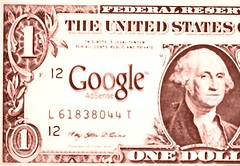It's a virtual world where anybody can participate in building an online life through a graphical world like that seen in computer games such as Quake and Doom. In fact it is interactive like those but in the mold of SimCity.
But it is more than just a SimCity with other players interacting with you. Yes you can build your own virtual house, etc, but you can also set up a virtual frontend to your real business!
Stores in Second Life do millions of US Dollars of transactions each month.
Perhaps this is the next step in ecommerce. Books may sell through the traditional browser, but goods demanding a more tactile experience such as clothes have battled to achieve the same level of success.
There are over 1 million residents of Second Life. Quite a market!
Here it is in their words:
Second Life is a 3-D virtual world entirely built and owned by its residents. Since opening to the public in 2003, it has grown explosively and today is inhabited by a total of 1,049,836 people from around the globe.
- From the moment you enter the World you'll discover a vast digital continent, teeming with people, entertainment, experiences and opportunity. Once you've explored a bit, perhaps you'll find a perfect parcel of land to build your house or business.
- You'll also be surrounded by the Creations of your fellow residents. Because residents retain the rights to their digital creations, they can buy, sell and trade with other residents.
- The Marketplace currently supports millions of US dollars in monthly transactions. This commerce is handled with the in-world currency, the Linden dollar, which can be converted to US dollars at several thriving online currency exchanges.
Welcome to Second Life. We look forward to seeing you in-world.
 |
| Picture: Second Life |
Now imagine where this could go. I firmly believe that we are not far away from having sensors create visual overlays to what we see in the real world. These will replace monitors. Already, you can buy glasses with a display built in. Certain games overlay graphics over your real surroundings for a kind of hybrid real / virtual version of your favourite shoot-em-up.
Think of what a limitation the 2D 15-inch (or even 19-inch) monitor is in front of you. Imagine rather seeing computer documents on your physical desktop.
The idea of a person's mind taking over the graphic display is old. It has of course featured in the Lawnmower Man, Johnny Mneumonic and most famously the Matrix. I am sure there are many more.
The best I ever saw, however was the virtual information system in the movie Disclosure. It took the most tried computer concept - the computer as a filing system - and built a virtual world that made the concept a richer experience.
Now combine that with a world like Second Life and the computing paradigm is changed forever!



